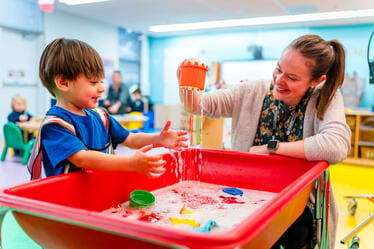We use cookies to improve your online experiences. To learn more and choose your cookies options, please refer to our cookie policy.


This month, the British International School of Washington observed Bullying Prevention Month with presentations for secondary school students by BISW’s School Counsellor Devon DeCataldo, LGPC, NCC. The presentations gave an overview of BISW’s anti-bullying policy, which outlines a thorough definition of bullying. Explaining the school’s management of bullying, Ms DeCataldo clarified that the school encourages students, parents, and school staff to report any suspected, mentioned, or witnessed bullying to the student’s class teacher or form tutor.
“When bullying is reported,” Ms DeCataldo said, “Leadership, teachers, and the counsellor work together to ensure that the affected student feels safe at school. Interventions are tailored to the individual student and circumstance.”
The students examined the multiple types of bullying: verbal, psychological, relational, physical, and cyber. Verbal bullying can encompass the repeated use of words to hurt another individual or group. Psychological bullying can include repeated threatening, manipulating, emotionally blackmailing, and more. Relational bullying can involve ostracizing others or convincing people to exclude or reject individuals or groups from social connections. It can also appear as making up or spreading rumours or sharing someone’s personal information. Physical bullying can mean repetitive physical harm to a person or a person’s property. Cyberbullying can take place when information and communication technologies, such as email, text messaging, instant messaging, and social media, become a medium for bullying individuals or groups. The students looked at broad definitions of the types of bullying and then focused on the importance of anti-bullying, an active approach to end bullying.
“Anti-bullying is important because we understand that bullying is unfortunately common and something we must actively work to prevent as a school community,” Ms DeCataldo said. “Bullying has proven to have lasting academic, psychological, and physical impacts on not just the victims but also the bystanders and students engaging in the behaviour as well. According to the National Center for Education Statistics and Bureau of Justice, about 20 percent of students ages 12 to 18 have experienced bullying. At BISW, we strive to create an open, respectful, and inclusive school climate, and making a clear statement that we are anti-bullying supports that goal. Teaching students how to take an active role in creating a positive school climate is another key prevention strategy.”
Here, the presentation turned to a discussion on the importance of being an upstander, someone who sees a problem and takes action to help make things better. For example, an upstander might be someone who accompanies a friend to report a concern to an adult or someone who witnesses an incident and reports it. Upstanders refuse to be a bystander. They reach out to new people, make friends outside their own circle, and stop the spread of false or unkind messages. They also watch for the signs that someone is being bullied. These signs include frequent injuries, lost or destroyed property, regularly feeling sick, avoiding school, declining grades, sudden loss of friends, decreased self-esteem, appearing withdrawn, and difficulty sleeping. While people look for these signs around them, they should also think about them within themselves.
“If you are feeling helpless, powerless, or targeted by an individual or group, please report this ASAP to your parents, teacher, form tutor, or counsellor. Don’t ignore it!” Ms DeCataldo urged. Furthermore, some people do not realize when their behaviours qualify as bullying. Therefore, people can take an anti-bullying stance by reflecting on their conduct.
“If you are engaging in behaviours that you think might be harming someone else, please talk to a trusted adult,” Ms DeCataldo said. “With help, you can understand what is causing your behaviour and find alternative ways to fit in or cope with difficult feelings.”
The presentations asked the students to consider how they might make BISW an even kinder, more inclusive, and accepting place. Students wrote and shared a variety of anti-bullying commitments.
“Treat other people the way you want to be treated.”
“Report offensive posts on social media.”
“End conversations that are negative about others in the moment.”
“Ask someone who is sitting alone to join in.”
“Include people, even if you don’t agree with them.”
“Be an upstander, not a bystander.”
The students reviewed BISW’s commitments: ambition, courage, integrity, openness, and respect. With these commitments in mind, students can make a positive difference in the world, dare to challenge the norm, take intelligent risks, and tackle difficult situations ethically. BISW encourages its community to stand up for what is right, be inquisitive and receptive to new ideas, support and co-operate with one another, and not only embrace but also celebrate diversity.